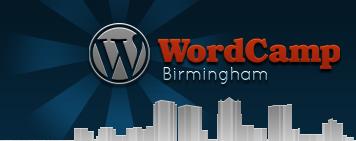 In a few weeks, I will be a presenter at WordCamp Birmingham 2009 (that’s Birmingham, Alabama, not England, by the way). Last year, I did a presentation on “The Future of WordPress“, shortly before the release of version 2.7. I briefly considered doing the same thing this year, updated with speculation about the upcoming versions 2.9 and 3.0, but that seemed like a cop-out. I wanted to do something a little deeper.
In a few weeks, I will be a presenter at WordCamp Birmingham 2009 (that’s Birmingham, Alabama, not England, by the way). Last year, I did a presentation on “The Future of WordPress“, shortly before the release of version 2.7. I briefly considered doing the same thing this year, updated with speculation about the upcoming versions 2.9 and 3.0, but that seemed like a cop-out. I wanted to do something a little deeper.
One of the things that always frustrates me about starting to work with a new programming language, or with a new framework for a language I already know, is the initial learning curve. Everybody wants to start out with the ubiquitous “Hello, World” example, which is great for a quick syntax example, but is pretty useless for practical purposes. I always want a good primer which doesn’t assume I’m a complete beginner, and dives right into useful examples. I want to know how to find the existing pieces of the system that are going to make my life easier. So I thought others might appreciate something like that for WordPress plugin programming.
So that’s going to be my presentation topic this year. I’m going to try to create an introduction to creating plugins for WordPress. While there are bits of the process that can be complex, the real meat of the API hooks (filters and actions) are really pretty simple. And I think that with a good overview, those who aren’t already familiar with programming for WordPress can get up-to-speed more quickly than if they had to discover everything by searching the web and using trial-and-error. While I will try to keep things as simple as possible, I’m going to assume that my target audience will at least have a basic knowledge of programming concepts to include what functions and arrays are. You won’t have to be a PHP expert, or even be able to sit down and write a program from scratch without a reference book handy.
I will, of course, make the presentation available online when the WordCamp arrives. And since I’ll be limited by time in my presentation, I’d like to publish an expanded version here later as a series of articles where I can go into more depth.
I’ve already started a rough outline of what I want to cover. But I’d welcome any ideas or questions on this topic. If you are already familiar with programming, but you’re new to programming in the WordPress framework, what questions have you had? What concepts confuse you? What areas would you like to see covered?
 In a short while, I’ll be leaving Atlanta, and heading west to Alabama for WordCamp Birmingham 2009. I’m giving a presentation on Saturday morning about Jumping Into WordPress Plugin Programming. Of course, my presentation still isn’t done, so I’ll be burning the midnight oil tonight, finishing up my notes, gathering up my bookmarks, and turning it all into a slideshow. Unfortunately, my presentation is in the first slot of the morning. Fortunately, once that’s over with (for better or worse), I can enjoy the rest of WordCamp relatively stress-free.
In a short while, I’ll be leaving Atlanta, and heading west to Alabama for WordCamp Birmingham 2009. I’m giving a presentation on Saturday morning about Jumping Into WordPress Plugin Programming. Of course, my presentation still isn’t done, so I’ll be burning the midnight oil tonight, finishing up my notes, gathering up my bookmarks, and turning it all into a slideshow. Unfortunately, my presentation is in the first slot of the morning. Fortunately, once that’s over with (for better or worse), I can enjoy the rest of WordCamp relatively stress-free.

